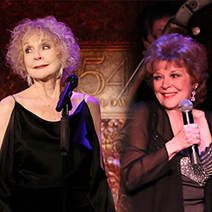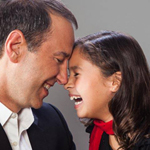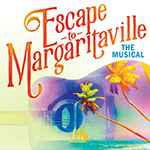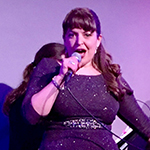Anita Gillette & Penny Fuller
Sin Twisters, Too!
Feinstein’s/54 Below, NYC , February 24, 2016
Reviewed by Joel Benjamin for Cabaret Scenes

Anita Gillette and Penny Fuller are terrific. They’re consummate professionals with resumés that go back to the fifties, yet they are as fresh and passionate about performing as the ingénues they used to play during Broadway’s “Golden Age.”
The title of their show, Sin Twisters, Too! is a spoonerism for Twin Sisters, celebrating their close friendship that has lasted decades. The opening songs attested to their mutual admiration society: “Friends” (Bock/Harnick), “We Got Us” (Walter Marks) and “Miss Celie’s Blues (Sister)” (Quincy Jones/Jeremy Lubbock/Ron Pemberton).
They told of coming to New York—Gillette from Baltimore and Fuller from North Carolina—and auditioning. Gillette sang “Baubles, Bangles and Beads” (Borodin/Wright/Forrest) and “I’m Just Wild About Harry” (Blake/Sissle) and Fuller, “A Wonderful Guy” (Rodgers/Hammerstein).
Their emotionally rich journey through their careers and personal lives was laid out in one beautifully sung number after another, some from the shows they appeared in and some illustrating their emotional states, culminating in a medley of songs from Cabaret, in which they both appeared.
Gillette’s “Once Upon a Time” (Strouse/Adams) from All American was heartbreaking. From The Gay Life, a rather poor experience for her, she performed the poignant “Magic Moment” (Schwartz/Dietz), all the richer considering she was fired from the show. She was soon joined by Fuller for “Make the Man Love Me” (Schwartz/Fields), the two selections made for a rich tapestry of love’s disappointments. Fuller’s “Finishing the Hat” (Sondheim) was her way of expressing her complex life as an artist.
They sang about spring: The bittersweet “Spring Can Really Hang You Up the Most” (Wolf/Landesman) sardonically delivered by Gillette, and “Spring Will Come Again” (Bernstein/Comden/Green), Fuller’s more optimistic view. They ended with “You’re the Top,” replacing Cole Porter’s dated, but charming, references with very modern allusions written by their director, cabaret great Barry Kleinbort.
Paul Greenwood, the musical director and pianist, and bassist Ritt Henn were totally in the moment, occasionally harmonizing with the ladies.





